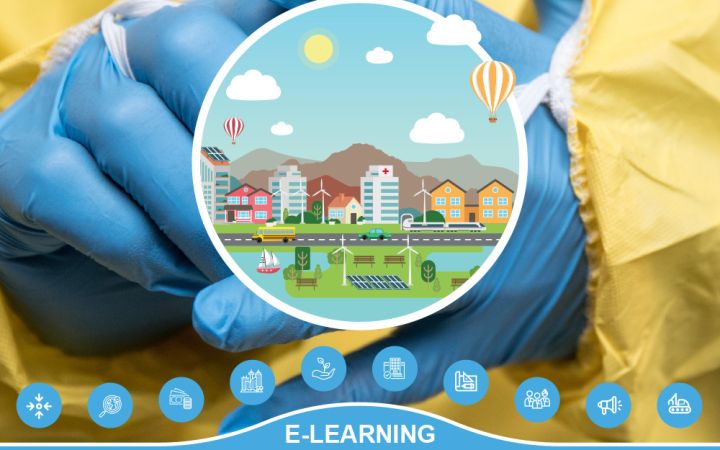September 2020, All communities are at risk of emergencies and disasters, including those associated with natural hazards, infectious disease outbreaks, conflicts, technological and other hazards. Particularly in the context of increased urbanization and climate change, frequency, severity and impact of those events are crucial. Currently, countries face the COVID-19 pandemic with millions of cases and thousands of deaths confirmed worldwide, demonstrating the profound impact that pandemics have for public health systems and for other systems within the city/country. There is a greater need for comprehensive resilience and risk reduction plans that involves all sectors and actors in society.
In line with the Sendai Framework for Disaster Risk Reduction 2015-2030, SDG 11.B and SDG 3.D, UNITAR’s Division for People in collaboration with the United Nations Office for Disaster Risk Reduction (UNDRR) and its Global Education and Training Institute (GETI) and the World Health Organization (WHO) are offering on an ongoing basis the e-Learning Course “Resilience of Local Governments: A multi-sectoral approach to integrate public health and disaster risk management” (in English and Spanish) to contribute to strengthening the capacity of local government officials for risk reduction and resilience planning inclusive of health threats management.
In view of current and emerging risks to public health and the need for more effective coordination and management of resources, this course presents two frameworks that provide guidance on how to integrate public health systems and disaster risk management:
- UNDRR’s Disaster Resilience Scorecard for Cities: Public Health System Resilience - Addendum Consultative Version 2.0 that aims to serve as a tool to strengthen the local governance resilience by ensuring that public health issues are taken into consideration when planning for disaster risk reduction/resilience.
- WHO’s Health Emergency and Disaster Risk Management Framework (Health EDRM) provides a comprehensive approach that can be applied by all actors in health and other sectors who are working to reduce health risks and consequences of emergencies and disasters, and build the resilience of health systems, communities and countries.
With a successful reception from the audience, the summer edition of this course surpassed 1,000 registrations. Currently, the autumn edition is taking place, in addition to by invitation-only sessions for government officials in Chile, the Dominican Republic and Costa Rica.


